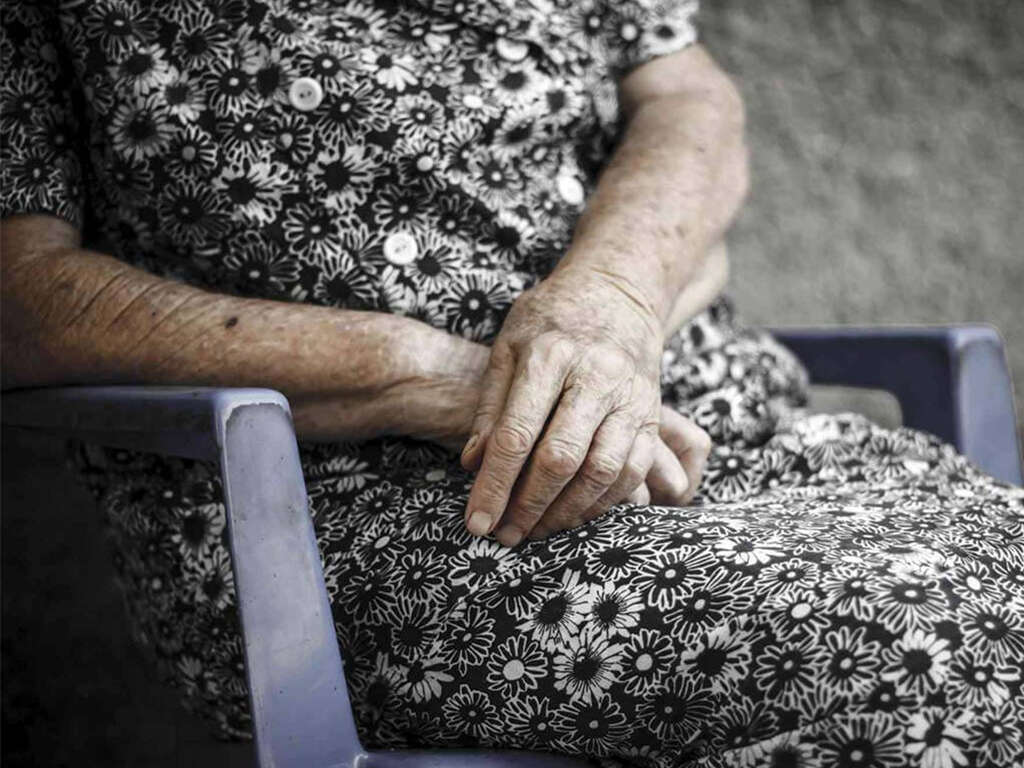10 Early Signs of Parkinson's
 Article Sources
Article Sources
- 1. '10 Early Signs of Parkinson's Disease.' Parkinson's Foundation, [www.parkinson.org/understanding-parkinsons/10-early-warning-signs.](http://www.parkinson.org/understanding-parkinsons/10-early-warning-signs.)
- 2. '23 Parkinson's Symptoms to Look For.' APDA, 29 June 2020, www.apdaparkinson.org/what-is-parkinsons/symptoms/
Parkinson's is a neurodegenerative disorder that develops slowly over several years. The progressive disease affects dopamine-producing neurons in the substantia nigra area of the brain. Medical professionals don't know the exact cause of Parkinson's disease, and there's no cure to date for the severe condition.
However, the slow progression of the disorder allows individuals and physicians to identify the early signs of Parkinson's and make an initial diagnosis. The symptoms of early Parkinson's disease include movement problems, tremors, balance, constipation and certain changes affecting smell, handwriting, facial expressions and vocals.1‘10 Early Signs of Parkinson’s Disease.’ Parkinson’s Foundation, www.parkinson.org/understanding-parkinsons/10-early-warning-signs.

Slow Moving
Common early signs of Parkinson's disease involve problems with everyday movements. These may be subtle at first, such as developing an irregular pace, where a person walks at normal pace then slows down and speeds up again unintentionally. Additionally, individuals with Parkinson's may change the length of their stride at the same time.
Another symptom that may occur while walking is difficulty swinging one or both arms with each step. These signs show issues with natural movements. As the condition progresses, patients may experience freezing, where their body doesn't respond to the need to take the next step.2‘23 Parkinson’s Symptoms to Look For.’ APDA, 29 June 2020, www.apdaparkinson.org/what-is-parkinsons/symptoms/

A Tremor
Rather than multiple tremors, an early sign of Parkinson's may involve a single, noticeable tremor in one area of the body that occurs at rest. More areas of the body may be affected by tremors later on. These differ from the shakes people experience with anxiety or overexertion from exercise or other activities.
The involuntary movement may begin with the fingers, chin and hands. Certain medications and conditions may also cause similar movements. Physicians may review a patient's prescriptions before sending them for further testing.

Loss of Smell
A loss of smell is associated with several conditions. However, with early Parkinson's disease, the symptom may be more subtle. Rather than not smelling anything, people with the disease may have trouble smelling certain foods with distinctive and strong aromas, such as dill pickles, licorice or bananas.
Individuals who notice a loss of smell and haven't had a recent cold or flu should schedule an appointment with their primary care physician.

Sleep Problems
Similar to the loss of smell, sleep problems are a common sign of many conditions, including stress and sleep-wake cycle disorders. These may include quick twitches and other involuntary movements. However, people with Parkinson's disease can experience extreme movements in their sleep, such as flailing arms and legs.
Additionally, rather than a few sleepless nights of tossing and turning, it's typically a nightly problem. This early sign of Parkinson's may progress to where the person disrupts their partner's sleep along with their own.

Small Handwriting
In the digital age, noticing small handwriting may be more difficult. Additionally, it's common for handwriting to change as people age. However, if a person's penmanship becomes increasingly smaller and the words are crowded together, it may be a sign of Parkinson's disease.
The condition is known as micrographia. Anyone with handwriting that's getting smaller and harder to read should contact their doctor. If other signs of Parkinson's are occurring with reduced handwriting size, a referral to a specialist may be necessary.

Vocal Issues
Many people don't realize that the early signs of Parkinson's may involve the vocal cords, which can cause problems with a person's voice. People may tell an individual that their voice is too low to hear them or it sounds hoarse or raspy.
Although it's common to experience these symptoms with a cold or other viral infections, these problems with a low or hoarse voice typically go away within a few days.

Dizziness or Fainting
Dizziness and fainting may be symptoms of various conditions. They can also be responses to the environment and certain medications. For example, people on prescriptions to reduce blood pressure may feel dizzy when they get up too fast.
People with Parkinson's who aren't on blood pressure medications may experience dizziness or fainting due to low blood pressure. Anyone experiencing these symptoms regularly should contact their doctor, as dizziness and fainting may be signs of underlying medical conditions.

Hunching Over
A person who's overexerted themselves, experiencing pain or sick, may stand crookedly or hunch over. Also, issues with posture can cause these symptoms. However, when friends and family members notice a person is stooping or slouching oddly while standing in place, they should see their doctor.
Hunching over or slouching may indicate postural instability and can lead to falling. During the early stages of Parkinson's disease, changes in posture are mild and worsen gradually over time.

Facial Masking
A masked face is a common early sign of Parkinson's that other people may notice first. For example, friends and family may tell the person they always seem to have a serious or angry face, even when they're in a happy or upbeat mood.
While taking certain medications can make a person have a fixed look or be less animated, this "facial mask" should go away after stopping the medicine. If it doesn't, a person should return to their doctor for further investigation.

Constipation
Constipation can be caused by many conditions, such as IBS, an underactive thyroid or as a side effect from certain medications. Straining for a bowel movement could be recognized as an early symptom for Parkinson's disease.
Constipation develops because this neurological condition also affects the nerves and muscles involved in moving the stool through the intestines. Drinking more water, consuming more fiber and taking laxatives are recommended for treating constipation.











